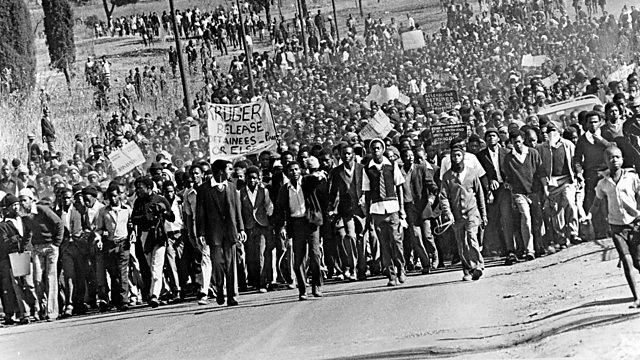
Image source: PeoplesDispatch.Org
June 16, 1976, stands as a pivotal date in South Africa's history—a day that witnessed the eruption of the Soweto Uprising. The events that unfolded on that fateful day marked a turning point in the country's fight against the oppressive apartheid regime. Led by courageous students, this grassroots movement challenged the government's discriminatory education policies and became a catalyst for broader resistance. Let us delve into the significance and lasting impact of the Soweto Uprising.
In the 1970s, South Africa was deeply entrenched in apartheid, a system of racial segregation and discrimination. The government enforced policies that oppressed the black majority, including the introduction of Afrikaans as the medium of instruction in schools. This policy was met with strong opposition from students who saw it as an attempt to further marginalize them.
On the morning of June 16, thousands of students from Soweto took to the streets, armed not with weapons but with courage, conviction, and a desire for change. They intended to hold a peaceful march against the imposition of Afrikaans, but the response they received would ignite a violent clash that would reverberate throughout the nation.
The South African police responded to the peaceful protests with excessive force, firing tear gas, rubber bullets, and live ammunition at the unarmed students. The confrontation quickly escalated, leading to scenes of chaos and tragedy. The exact number of casualties remains disputed, but it is estimated that several hundred people, predominantly students, lost their lives that day.

Image source: Wikipedia
One face that symbolized the brutality of the Soweto Uprising was that of 13-year-old Hector Pieterson. His image being carried lifeless by another student captured the attention of the world, encapsulating the anguish and sacrifice of those who fought against apartheid.
The events of June 16, 1976, resonated beyond South Africa's borders, sparking international outrage and condemnation. The brutality of the apartheid regime and the heroism of the Soweto students brought attention to the systematic oppression faced by black South Africans. The global community stood in solidarity with the struggle against apartheid, leading to increased pressure on the South African government to dismantle this discriminatory regime.
The Soweto Uprising marked a turning point in South Africa's anti-apartheid movement. It ignited a wave of protests and resistance across the country, and particularly among the youth, who became a powerful force in the struggle for freedom and equality. The uprising challenged the notion that the apartheid regime was invincible and served as a catalyst for broader opposition against racial segregation.
The legacy of the Soweto Uprising endures today. It demonstrated the power of collective action and the bravery of ordinary individuals in the face of oppression. The events of June 16, 1976, left an indelible mark on South African history, shaping the trajectory of the anti-apartheid movement and ultimately contributing to the dismantling of apartheid.
The Soweto Uprising remains a powerful testament to the resilience and determination of the South African people in their pursuit of freedom and equality. The events of June 16, 1976, not only exposed the brutality of the apartheid regime but also inspired a generation of activists and garnered international support. It stands as a reminder that even in the darkest times, the quest for justice can ignite a flame of hope that burns bright and drives the wheels of change.

